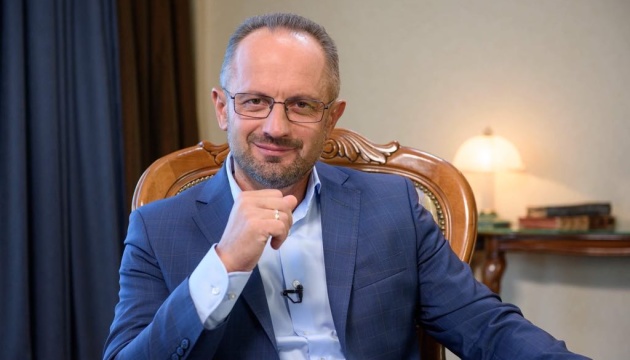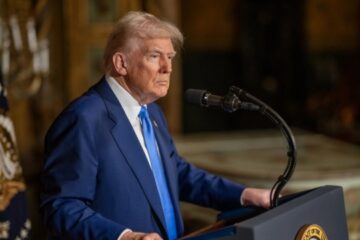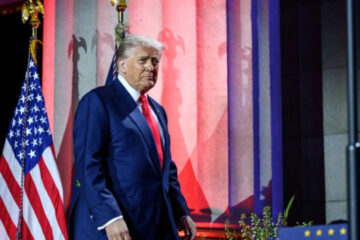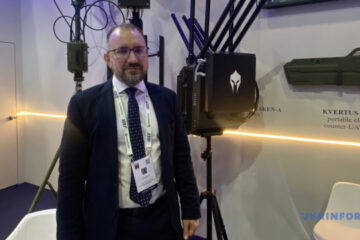Donald Trump’s loud statements and his 50-day “ultimatum” to Putin have become the main focus of the week. But what is actually hidden behind this rhetoric – is it a real shift towards backing Ukraine or will the “mountain give birth to a mouse” again? How is the Kremlin responding to these signals and what has Kyiv to prepare for?
Ukrinform sat down with Roman Bezsmertny, Ukrainian politician and diplomat, for an interview about this and more.
– Mr. Roman, Trump’s latest statements, in particular the 50-day ultimatum to Putin, look more like an intricate game. On the one hand, there is a commitment of weapons for Ukraine, but with Europe’s money. On the other, there are threats to introduce “secondary sanctions” against Russia and its trading partners if a peace agreement is not reached within 50 days. How would you interpret this strategy? Is this a real pressure on the Kremlin or rather political theater? Is it a shift towards Ukraine or will it be great cry and little woo again?
– To me, this is an obvious shift in tactics. This is not a strategic breakthrough, but a tactical course adjustment. Donald Trump is fundamentally incapable of thinking strategically – and this statement only confirms this. Despite the fact that his decision seems sincere, he does not have the tools relevant to the scale and extent of the challenges faced by West with respect to Russia’s war against Ukraine.
The “50-day” formula is essentially an ultimatum, but the very time limit actually nullifies its power, essentially turning it into a purely tactical tool of a businessman rather than an element of strategic pressure. Nothing more. And nothing less.
It is hard to predict whether this rhetoric, this new tactic will preserve for long time. Because this is Trump. He himself is the embodiment of unpredictability. It would be naïve to believe this line will be continued at least into the medium term. Therefore, we have to proceed from the logic of readiness for any U-turn. Variability and flightiness are inherent in his political behavior.
To summarize, by taking this move Trump has actually reversed the situation back to the late days of Biden’s administration: weapons are going to flow again. They will come both through European purchases and through presidential programs that have already been renewed and started working again.
However, everything that concerns truly strategic things – such as the supply of long-range weapons, etc. – remains in the realm of words, realm of promises, not real actions. And this is the main limitation of all of Trump’s current “tactics”.
– Senator Lindsey Graham is hinting that on the 51st day, Russia can expect “something very interesting”, presumably drawing parallels with Iran. What pressure tools, besides military ones, do you think the White House can use if Putin did not comply with the ultimatum’s terms?
– Obviously enough, if this is the case, no B-2s will take off to the air. And there will be no deep strikes on Putin’s – the Führer’s – bunker. But a maneuver, sharp and unexpected, is possible. And, fortunately for Trump – and for us – the arsenal of the means that can be used on this direction is much wider than what could have been used against Iran.
It may happen that a “gift” will fly to Putin. And this strike may be delivered at a location that is particularly painful for him. It is worth emphasizing: this is not about Trump acting alone. Just as Israel acted against Iran, so Ukraine will act against Russia. And no one will be able to forbid Ukraine from having in its arsenal a hypothetical equivalent of the JASSM (Joint Air-to-Surface Standoff Missile), capable of striking like strategic aviation – as has already been the case where a third of Russia’s operational long-range aviation fleet was damaged or destroyed in one day.
The current discourse among the expert community suggests one thing: the set of tools for such actions is much broader than some of Trump’s critics, his supporters – and, in fact, his enemies – imagine. This point, despite its apparent significance, often remains underestimated and even ill-considered.
Let’s have a look, for example, at the analytical article published on the website “Russia in Global Politics” – a publication that reflects the Kremlin’s rumination. The article is authored by Fyodor Lukyanov, one of the main ideologists of Russian foreign policy. He concedes the very fact of the maneuver having taken place already. But it is impossible to predict how this will continue and for how long.
Of course, even in 2025 Presidential Transition Project, or Project 2025 (a 922-page plan to overhaul the federal government, led by conservative think tank the Heritage Foundation among others), the scenarios for the Middle East and Ukraine are described differently. While in the Middle East strategic aviation led by B-2s can take off from Kansas and fly for 15 hours, then in the case of Russian aggression, Ukraine is supposed to do the major part of the work. And it may start it not on the 51st, but on the 40th day – everything will depend on Moscow’s rhetoric and the development of the situation on the front.
And I would like to highlight it once again: many people think that there is nothing but chatter behind Trump’s rhetoric. But it is not so. There are possibilities. And if Trump shows his will…
– How do you think is this ultimatum actually perceived by the Kremlin? Do they see it as a real threat, or do they consider it another maneuver by Trump to allow them to continue the war, buying time?
– Fyodor Lukyanov provides the most accurate and profound analysis of the current situation. He is not just a commentator, but a kind of intellectual support for the Kremlin “Führer”. And that is why I always recommend disregarding loud, chaotic statements like those made by [Russian Foreign Minister Sergey Lavrov] or [ex-president Dmitry] Medvedev. These are “maybe flies”: they showed up, shouted something, then disappeared. Their words are nothing more than noise, emotion that has no depth, structure, or strategy.
Instead, the real markers of change and signals are the people like Lukyanov or [political commentator and ideologue of the Kremlin regime Sergey] Karaganov. They form a system of arguments with which the Kremlin justifies its actions or builds a new logic. This is not just servicing the regime – it is the production of content that provides the basis for political decisions.
In view of this circumstance, Putin’s silence is particularly suggestive. He is observing, evaluating, waiting. And this in itself is a signal. But we must appreciate that Moscow’s strategy has never been to follow someone else’s steps or react in a “response” mode. On the contrary, its goal has always been to impose its own paradigm. To create discourse where Russia is not the responsible party, but the initiator and architect of the process.
And in this context, Moscow will perceive Trump not as an independent political actor, not as a subject of a global game, but as an object for use, as a tool in its information and geopolitical manipulations. It will play with him, integrating his statements, his chaos and egocentrism into its own, strictly organized game.
– Keith Kellogg, Trump’s special representative to Ukraine, stayed in Kyiv not for a week, as initially reported, but just four days. But, I believe, this is still a fairly long visit. What, in your opinion, could have been discussed – and what implications can this have for Ukraine?
– It seems entirely possible that specific options for action could have been discussed during the visit. But, as in the case of strikes on strategic aircraft, and in other, similar in logic, asynchronous, but pinpoint and highly effective operations – no one is supposed to know about this before it actually happens. Here the well-established principle works: each participant knows only his own segment of responsibility. Only one or two people see the full picture.
However, it’s definite that Kellogg was shown some things in Ukraine – perhaps potential tools that could be hypothetically used on the “51st day.” And this, undoubtedly, prompts some reflections. I am convinced that what he has seen will have an impact on the rhetoric in Washington – primarily in the Pentagon.
I believe it probable that we may soon witness even a reshuffle among the U.S. top brass. Because what is happening in the Pentagon today can rightfully be called a shame for America.
And here the key question arises – what exactly will Kellogg bring along to Trump? Will he bring along a signal that is already starting to sound loudly in influential American information circles: Ukraine is capable of prevailing in this war.
– So, are we returning to this rhetoric again?
– We have been living in this rhetoric for over a month now – since the moment U.S. Air Force General Alexus Grynkewich, the newly appointed Supreme Allied Commander Europe, replacing General Chris Cavoli, said in explicit terms: “I think Ukraine can prevail.”
This was not just a military assessment. This is the formulation of a new paradigm in which Ukraine’s victory is viewed not as an abstraction, but as an achievable goal. And against this backdrop, another authoritative source – The New York Post, one of the few media outlets that Donald Trump actually reads – addressed him in the form of a direct appeal: Putin understands only strength. And if you don’t show it – he will humiliate you.
These signals have already seriously affected the domestic political dynamics in the United States. Today, Trump has only one significant restraint left – internal brakes. Part of the MAGA movement, as well as elements of the so-called “deep state” are objecting to the direct strengthening of support for Ukraine. But, as experience suggests, a few personnel decisions can quickly change the balance of power. And the protest wave within the American bureaucracy can subside within a matter of weeks.
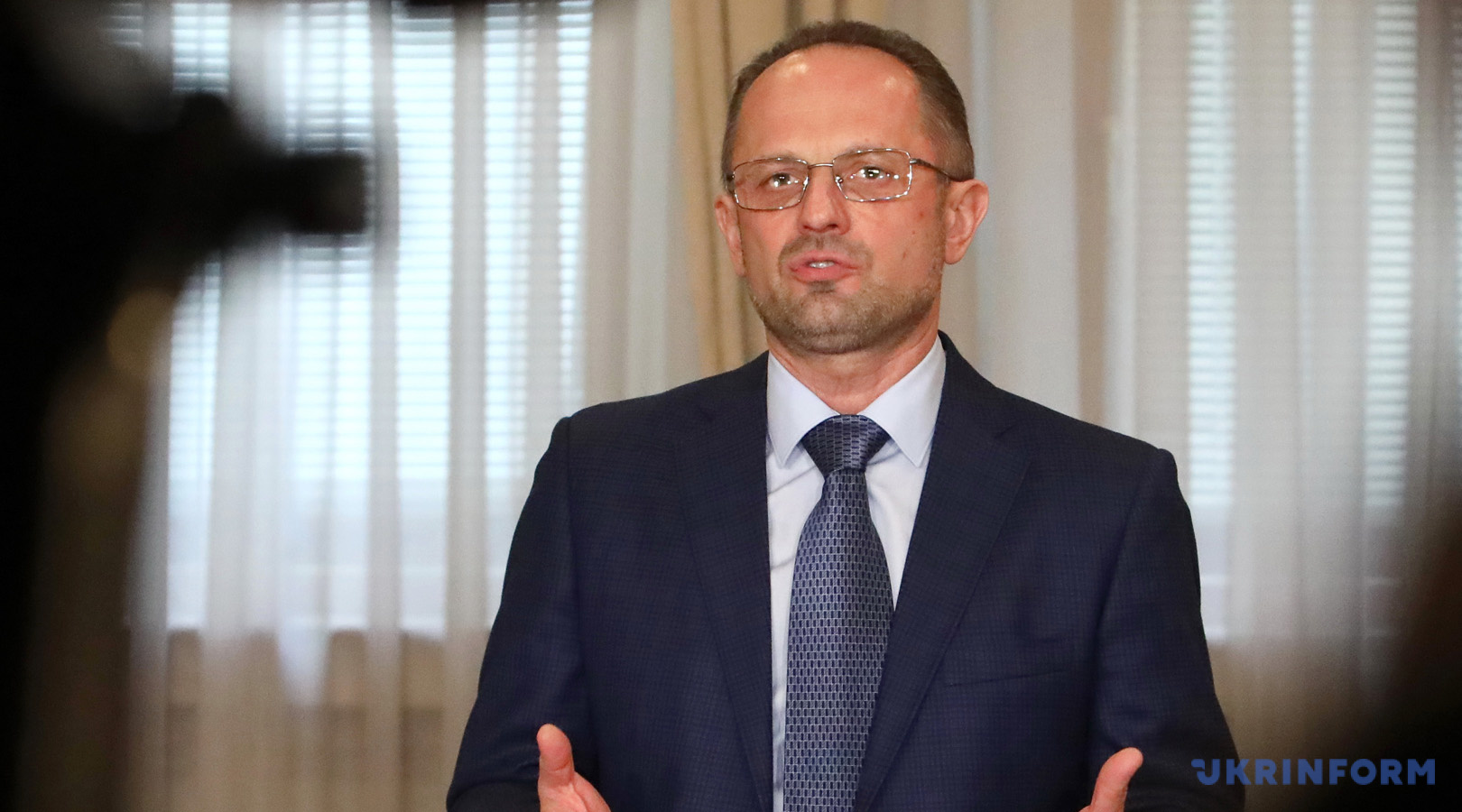
Trump does not need to make this war his own, as many among the American establishment fear. There are other, more flexible scenarios, and they are literally lying on the surface. If he wants to, on the hypothetical “51st day,” these decisions can be implemented. And this could potentially become a serious turning point – both in politics and in the logic of war itself.
Although, of course, Trump can choose a different tactic – stalling for time. Act like a businessman, play a game of nerves, blackmail Putin in the tough bargaining style. And this scenario cannot be ruled out either. Because with Trump, both is always possible.
– You mentioned Trump’s “internal brakes”… Do you think Kellogg can weaken them?
– He can. Kellogg already has such factors and such arguments after visiting Ukraine. Let me remind you that ahead of Kellogg’s arrival, news reports in Ukraine quoted President Zelensky as saying: “I gave the order that General Kellogg be very thoroughly briefed on the situation not only on the front line in general, but also in individual areas.” This, I think, created a completely different vision of the situation for Kellogg.
Following his Ukrainian visit, Kellogg already has at his disposal the factors and arguments that can seriously influence his further assessments of the situation. Let me remind you that on the eve of his arrival, President Zelensky publicly stated: “I gave the order that General Kellogg be very thoroughly briefed on the situation not only on the front line in general, but also in individual areas.”
This is not just a diplomatic gesture – it is a strategic step. Because direct and substantive contact with members of [Ukraine’s] top brass and commanders in charge of operations in specific sections of the frontline gives a completely different perception of the course of war than what can be obtained from publicly available sources or heard from analysts, most particularly Pentagon analysts. Unfortunately, it should be noted that most of them no longer understand the real dynamics of the fighting on the front lines of the Russian-Ukrainian war. They operate with templates from previous stages of the war or, basically, guided by an outdated assessment methodology. In this context, Kellogg’s Ukraine mission may have a very important, if not turn-point importance, both for the internal discourse in the United States and for the political decisions to be made by members of Trump’s inner circle.
– Mr. Roman, how do you view this leak from the Financial Times about Trump’s alleged conversation with Zelensky, where the U.S. president purportedly inquires: “Why aren’t you hitting Moscow or St. Petersburg yet?” What was it all about? And why? Is this a sophisticated hint, perhaps intended for Putin? Or maybe a “tease to Trump” suggesting he is “on no one’s side”?
– Starting from recent publications in Axios news service, conversations about the possible use of Tomahawks, JASSM or ATACMS, and articles in the Financial Times – these are all tools of information pressure. And we must pay tribute: the Americans are really excellent at this tool.
Look at how quickly Trump reacted. The very next day after these leaks, he declared: “There is no need to strike Moscow or Kremlin in particular, all important military assets like airbases are much closer to Ukraine”. This is an absolutely typical information game. The leak had a specific objective in mind – to look at the reaction from both sides at once: Ukraine on one side and the Kremlin on the other.
Accordingly, an adjustment of further behavior begins, depending on the reaction received. Washington thus sends a signal to the Kremlin, it is like Trump doesn’t object to it, and, under certain circumstances, a strike on Moscow is possible. That being said, however, Trump immediately came with a disclaimer, saying “there is no need to strike”. Just to leave room for maneuver. This is information intelligence in combat.
– While the 50-day countdown set by Trump continues, Russia will obviously try to use this time to the maximum effect possible to ramp up pressure on the front.
– Russia will act as long as and to the extent its capabilities allow. But these capabilities are gradually diminishing. And this is already visible in all domains.
Indeed, at first glance, in some dimensions – especially quantitative ones – the situation looks alarming, particularly in terms of the intensity and extent of drone attacks. But if you look deeper, what kind of drones are they using? A significant part of them are dummies. What am I getting at? I’m getting at the fact that today the war has entered a new phase where it is necessary to strictly separate the information background from the frontline reality. Even official statistics need to be looked into in depth. In particular, data on the production levels of ballistic missiles, drones, the level of artificial intelligence integration – this all must not be perceived superficially.
And here I will once again return to Kit Kellogg’s visit to Ukraine. What did he bring along to the United States? First of all, this is a simple but principled thesis: “Ukraine can win.” This is his personal conviction, formed not in offices, but on the basis of an analysis of the situation at hand.
Now let’s look at Moscow’s key argument. It traditionally relies on quantitative superiority. On numbers. On mass. On volumes. But this logic has its limits. And it has already been repeatedly destroyed – both in military theory and in practice. Because what is quantitative superiority overcome by? By what General Mark Milley constantly talked about. By what General Valery Zaluzhny constantly emphasizes. This is technological superiority. This is quality, not mass. This is higher accuracy, efficiency, adaptability.
Therefore, I reiterate it once again: Russia will continue to do its thing as long as its capabilities allow. But these capabilities are largely inflated by information. They are hypertrophied, artificially enhanced by propaganda. Russia is actually weaker than advertised. And each subsequent month of the war confirms this increasingly obvious trend.
– The recent decision by the European Court of Human Rights (ECHR) against Russia, holding it accountable for widespread and flagrant human rights abuses in Ukraine spanning over eight years, including those related to the downing of flight MH17, which resulted in the deaths of many Dutch nationals. What concrete, practical mechanisms can this undeniable victory, beyond its the symbolic significance, trigger in the long term? Can it become the foundation for future reparations from Russia or lawsuits against individual Russian officials?
– You are absolutely right in interpreting this issue. This is about a fundamental thing – the formation of a legal framework that will allow us to demand billions in compensation from Russia in the future for the misery and tragedy it has brought not only to the victims of specific crimes – in particular, the crash and downing of the plane – but also to millions of other people who have suffered or will suffer from this war.
It is crucial that the lawsuit extends to the crimes committed by Russia starting in 2014. This is a key point. The case is large-scale, 26 countries have joined it. All of them have clearly expressed their position, recognizing this period – especially after February 24, 2022 – as a period of mass systemic crimes.
This means that not only will we be talking about overall reparations from Russia as a state perpetrator responsible, but also about compensations to specific individuals, families of the deceased, as well as affected communities. That is to say, those who have worked on this for years – investigators, lawyers, human rights activists, diplomats – have done tremendous job. And they all deserve sincere thanks. This is not just about a moral victory. This is about forging the legal ground for the future tribunal against Putin and his entourage.
Why is this so important? Because these materials have already gone through the legal process. They have legal status. They are verified, recognized by the international community. It cannot be rewound back, it cannot simply be devalued by propaganda or counterarguments from the Kremlin.
This is the basis for systematic, legally justified pressure on Russia – a state that committed crimes against humanity, created the ideology of racism and is trying to impose it on the world as a norm. However, step by step, through the law, through the courts, through the facts – it will be driven into a dead end. And this time around – with no way out.
– We are increasingly hearing talk about a “European army” and the EU’s strategic autonomy. How do you view Ukraine’s potential place in this emerging European security architecture? Shall we continue relying solely on NATO, or is it time to develop more flexible models in parallel – for example, through bilateral or multilateral defense alliances with individual European countries? After all, the UK and Germany have already agreed on mutual defense in the event of an armed attack against either country. Is Ukraine capable of initiating similar alliances, and with whom exactly would they be realistic and effective?
– For now, Ukraine has signed bilateral security and defense deals with 21 partner countries. These deals may have different depths and degrees of commitment, but they are indicative of one thing: the old architecture of global security has finally crumbled. What existed in the world casually referred to as “post-Yalta” no longer works.
The events of recent weeks – in particular the signing of security agreements between France and the United Kingdom, and between the United Kingdom and Germany – are not just the precursor of new alliances, but of the formation of a new world configuration.
Macron’s visit to London and the emphasis on the coordination of nuclear strategies between Paris and London have evoked associations with the revival of the Entente. And the signing of the agreement between Berlin and London is already a geopolitical innovation, if we recall the historical rivalry between the Entente and the so-called Rome-Berlin-Tokyo axis. This is not just symbolism – it is the formation of new, horizontal, flexible alliances instead of bureaucratized multilateral blocs.
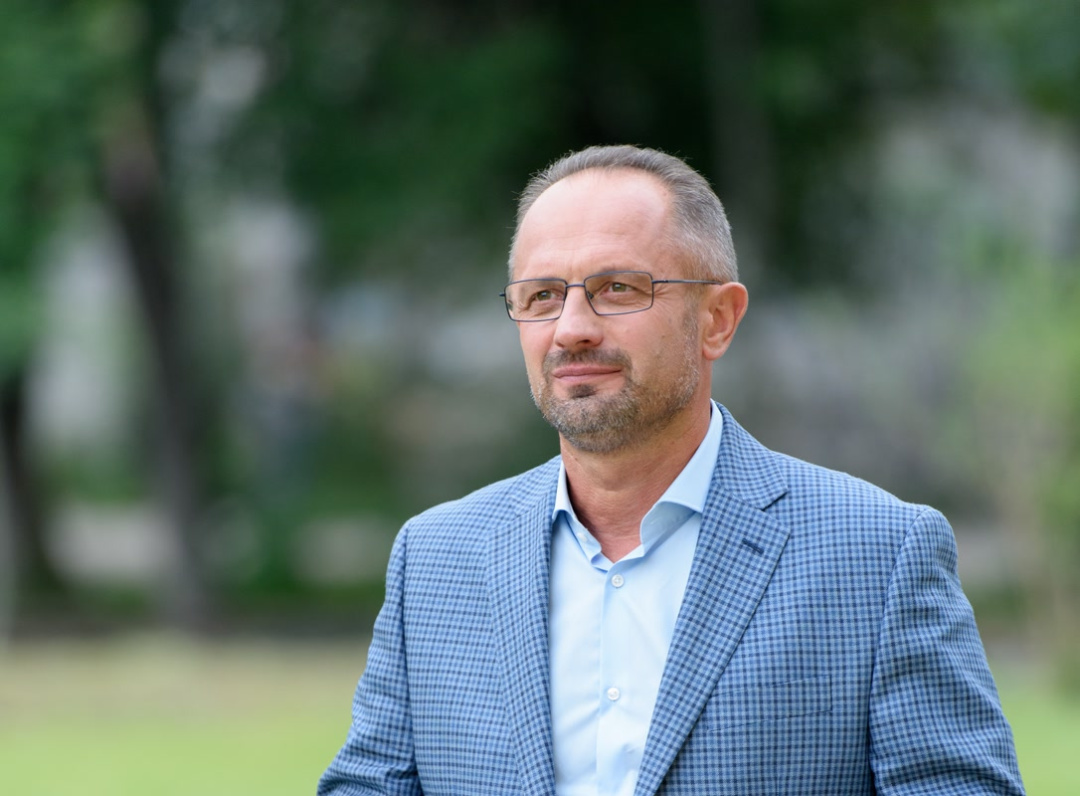
This is what former British Prime Minister Rishi Sunak wrote about in his “21st Century Disarmament” article he wrote for The Wall Street Journal. In it, he noted that modern security increasingly relies on bilateral or trilateral mechanisms – as it was in the 19th and 20th centuries. Parallels with the era of dynastic alliances and political realism no longer seem anachronistic, but become working tools.
And this was evident back in 2021, when the then head of the British Foreign Office, Liz Truss, explicitly said in her Christmas message: the future global security system will be labile. In it, peace will coexist with conflicts, and security alliances will be multi-level and heterogenous. These can be bilateral or quadrilateral agreements (like the Intermarium), alliances like AUKUS, initiatives like Ramstein or the still viable NATO. And each of these entities will be part to a common security field.
If humanity fails to realize the extent of the challenge, then we will enter an era of continental wars, and possibly a global collision. And only in the aftermath of the catastrophe will a new world order begin to take shape.
There are two options for this future. Either the world will continue to elect people like Trump, Fico or Orban – and then authoritarian regimes will prevail. Or a new type of political leaders will come to power: pragmatic, democratic, decisive. Such as Merz or Maloni. In this case, the democratic world is able to form a true coalition of freedom.
This course of action is not a dream, but a logical scenario. After taming the regime in Tehran, the Kremlin and its racist ideology will become a strategic target. And the next step is to confront imperial China. Only then will humanity be able to obtain a new model of global coexistence – without tyranny, blackmail and aggression.
– But what about Ukraine’s role in this…
– Regarding Ukraine’s role, I completely agree with the arguments that Boris Johnson once offerred: The Armed Forces of Ukraine can become the core of united, multinational armed forces in Europe. Today, the Ukrainian military is among the world’s strongest. Not only is this about the level of training, combat experience or modern equipment, but also about the intellectual core, content and character of this army. True, as in any army, there are problems there, but in general, this is a combat-ready, trained and motivated force that has earned global recognition. The United States and European countries are already well aware: the Ukrainian army is not an army for parades, it is an army for war. Therefore, in the future European security architecture, Ukraine’s place will be one of the central ones.
– How do you assess the current relations with Poland? What should Ukraine, Ukrainian diplomatic corps, civil society do so that Poland under the new president does not turn into Hungary 2.0 for us?
– We need to work with both Nowrocki and Poland – constructively, calmly, without unnecessary emotions. Moreover, I am convinced that it is the Ukrainian side that has significantly more arguments in this discussion. In particular, where it comes to the topic of the Volyn tragedy or the “Volyn massacre”, as it is referred to by Poland”. We need to maintain a calm, balanced dialogue, set clear historical accents, honor the memory of all victims, regardless of ethnicity or nationality, and absorb lessons from this painful page of history. But what matters most is not to pass this tragedy on to the present day or to the future. On the contrary: it should be reflected upon so that nothing like this never happens again.
After all, the roots of many interethnic conflicts – both then and now – often come not from spontaneous confrontations, but meticulously planned special operations. This is a legacy of imperial policy, dating back to the times of the Russian Empire, later – the Soviet Union, and now – the Russian Federation. This is the divide-and-rule principle in action: inciting hostility between Ukrainians and Poles was and remains beneficial to the Kremlin. And today’s surge of anti-Ukrainian sentiment in Poland is largely the result of external interference, in particular, the deliberate effort by the FSB, the Russian Foreign Intelligence Service, and other organizations that work to undermine Ukrainian-Polish relations through information influence.
In this context, particularly noteworthy are anti-Ukrainian and even anti-Israeli statements made recently by some Polish politicians. This is yet another evidence that we are dealing with a managed process, and not with an authentic internal demand from Polish society. Actually, I would not blame specific Polish politicians – many of them do not realize that they have become objects of manipulation. They are being “guided” – through control and manipulation of the domestic discourse, through the continuous introduction of emotionally charged theses that incite division.
Under these circumstances, the Ukrainian side has to remain calm and insist on dialogue, but dialogue armed with arguments, which we have enough of. Through calm, fact-based, sincere conversation, we must show what is really happening.
– Do you see prospects for changing the situation in Belarus?
Belarus must be freed from the influence of Ruscism, and I do believe that Ukraine’s victory over Russia, over its “Führer”, will lift this yoke from the Belarusian people as well. The fate of Belarus depends immediately on how quickly and decisively Ukraine overcomes Russian aggression. It Is this victory that will be the answer to the key question: what will be the future of Belarus?
Belarusians are a European nation. They quite naturally belong to both the European political and cultural community and the potential Intermarium-styled security architecture and, in the future, the NATO security system. Their participation in these processes is not just desirable, but it is necessary.
On the other hand, the current Lukashenko regime is an external instrument of oppression, a puppet government installed by Moscow. Lukashenko himself is not an independent actor, but a Moscow satellite, which the Kremlin keeps as a parasite on the body of the Belarusian people. This regime represses, humiliates, and suppresses Belarusian national dignity.
Therefore, the Belarusian people need to be helped – politically, morally, informationally, need to support those who resist, who preserve their identity, who dream of a free, democratic, European Belarus. Because Belarus deserves freedom, and it should be alongside other European nations in a common future without dictatorship and imperial shackles.
– So there are no prospects for change in sight in Belarus until our war ends?
– Changes will occur as part of the process of liberating not only Ukraine, but also all of the world from the influence of Ruscism – the toxic ideology that poses a threat to global security and freedom.
– Summing it up, in the Kyiv-Washington-Moscow triangle, we are observing a sophisticated game with many unknowns. What is your forecast for the coming months? What scenario do you consider the most likely, and what unexpected turns or “black swans” should Ukrainian diplomatic corps and society prepare for?
– First, it’s war.
Second is work to ensure closer strategic relations between Washington and Kyiv. But it is extremely important to understand: in this work, Ukraine must consistently establish itself as a full-fledged part of Europe. Not as a state moving towards Europe, but as its inseparable component – political, cultural, technological, structural, intellectual. This suggests that we need to act together towards this end, just like we have been doing since the beginning of this year.
And everyone who is currently engaged in a dialogue with Washington must clearly realize and constantly remind themselves: Kyiv is Europe. Ukraine is Europe. And this attitude must become the basis for our international policy.
Third. Whether a continental war can be avoided depends on the decisions to be made during this year. If steps are not taken to create a joint multinational European force – in which the Armed Forces of Ukraine will play a key role – the initiative will increasingly be seized by Moscow. If there are no decisions made with respect to nuclear security in Europe, if strategic decisions are further postponed, the axis of evil will be cemented, and we will find ourselves facing an extremely serious threat.
Today it is too early to talk about a global coalition of freedom and democracy. And this is first of all because of the unpredictability of the personality of Donald Trump. But we have to start grouping political and security forces in Europe even now. Leaders such as Emmanuel Macron, Friedrich Merz, Keir Starmer are moving in this direction. We must be part to this process. And we are already setting an example – by concluding bilateral security agreements, not entering into conflict with NATO, but on the contrary, bolstering the Euro-Atlantic security architecture.
This is a lengthy process that takes political will, strategic vision and time. But it is possible even in conditions where individual leaders – such as Trump, Orban or Fico – are putting the brakes on the common dynamics. Objectively, this complicates the work of politicians who well understand the threat: Rutte, Merz, Maloni, Kallas and Frederiksen. They all are forced to act cautiously, not as quickly as the situation requires. But they are still moving forward – and it is precisely this movement that Ukraine should join.
As for Ukraine proper, I am convinced: victory will come! But each of us must do a lot more to make it a reality. It is not always easy. But if we cannot run to victory – let’s walk. If we can’t walk – let’s crawl then. And if this is difficult too – let’s at least look for new ways to avoid stopping our goal. What means the most is never losing faith. Because faith is what gives us the strength to move forward. And movement is the path to victory. We will win!
Myroslav Liskovych, Kyiv

